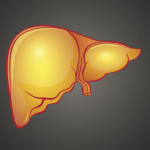A new study has found that the use of antiretrovirals in the integrase inhibitor class is associated with weight gain and hyperglycemia (high blood sugar) or diabetes, Healio reports.
Milena M. Murray, PharmD, MSc, of Midwestern University, presented findings from the study at the IDWeek conference in October.
Integrase inhibitors include bictegravir, which is a component of the single-tablet combination regimen Biktarvy; dolutegravir, which as a stand-alone pill is known by the brand name Tivicay and is included in Dovato, Juluca and Triumeq; raltegravir, which is called Isentress as a stand-alone pill; and elvitegravir, which is included in Genvoya and Stribild.
Murray and her colleagues analyzed data from the Food and Drug Administration (FDA) Adverse Event Reporting System database, looking at the last quarter of 2007 through the last quarter of 2019. They also looked at the Standardized MedDRA Query for hyperglycemia or new diagnoses of diabetes. They also searched for people who experienced weight gain.
There were some 10.1 million adverse events reported to the FDA during this period. More than 18,000 of them listed an integrase inhibitor as a primary or secondary antiretroviral.
Reports of weight gain were 2.16-fold more likely to mention an integrase inhibitor, including a 6.82-fold greater likelihood for bictegravir, a 1.86-fold greater likelihood for dolutegravir, a 1.63-fold greater likelihood for elvitegravir and a 3.29-fold greater likelihood for raltegravir.
Reports of hyperglycemia or new diagnoses of diabetes were 1.2-fold more likely to mention an integrase inhibitor, including a 1.23-fold greater likelihood for bictegravir and a 1.28-fold greater likelihood for dolutegravir. There were no such associations when it came to elvitegravir and raltegravir.
The study authors concluded that weight gain was associated with all individual integrase inhibitors and that hyperglycemia or diabetes were associated with bictegravir and dolutegravir.
To read the Healio article, click here.







Comments
Comments